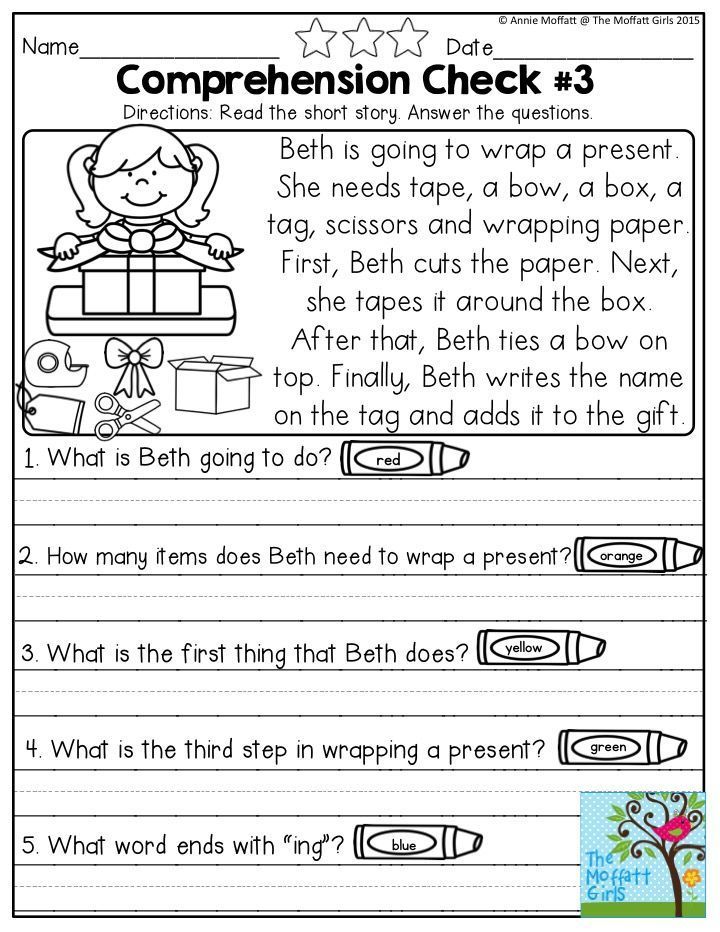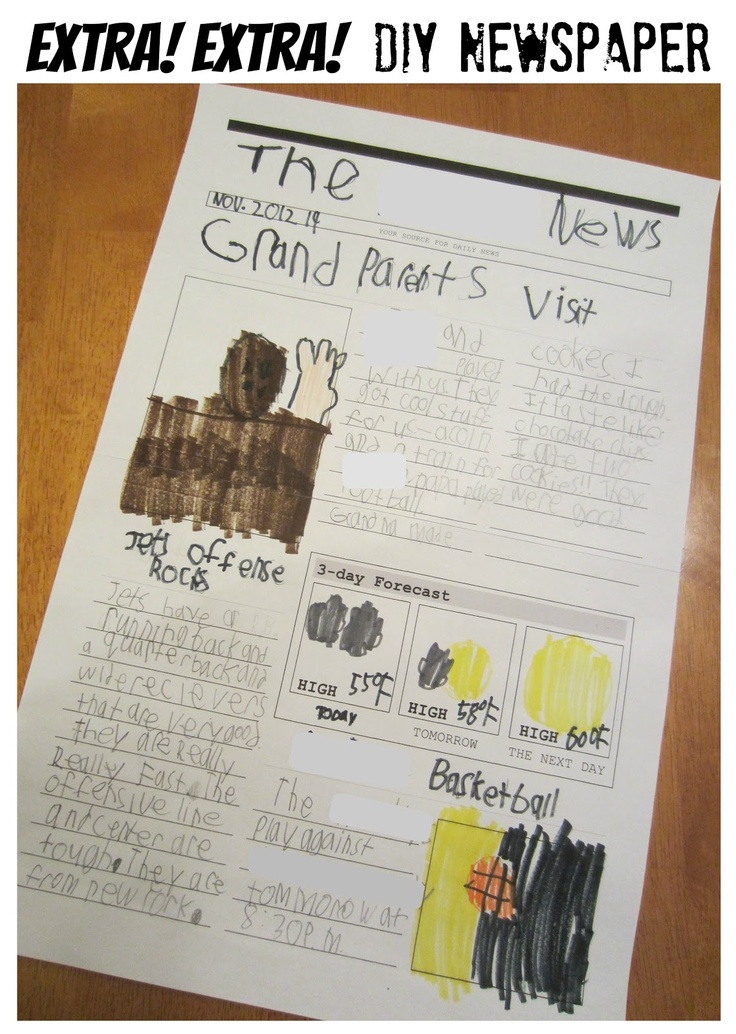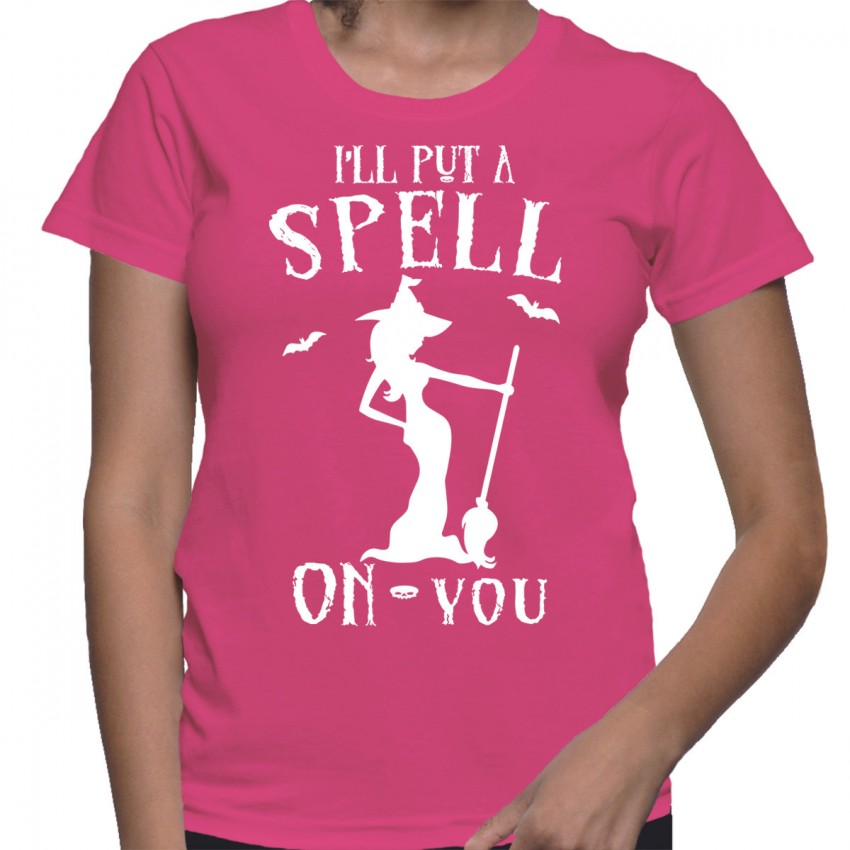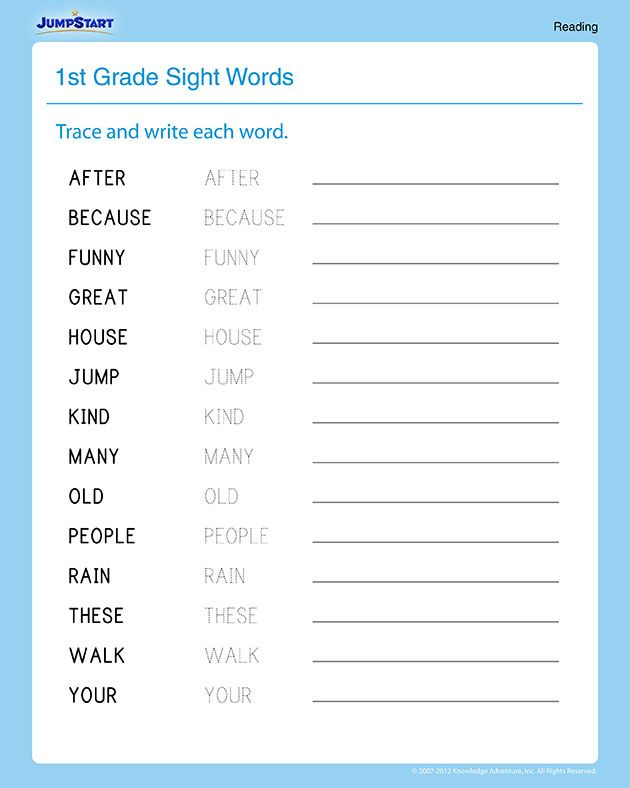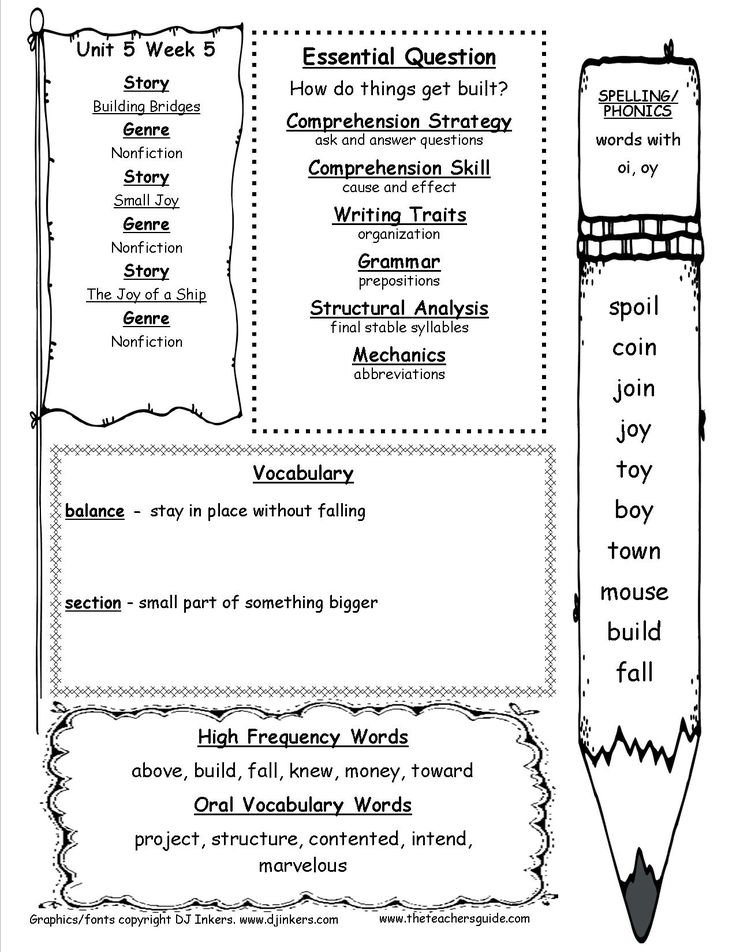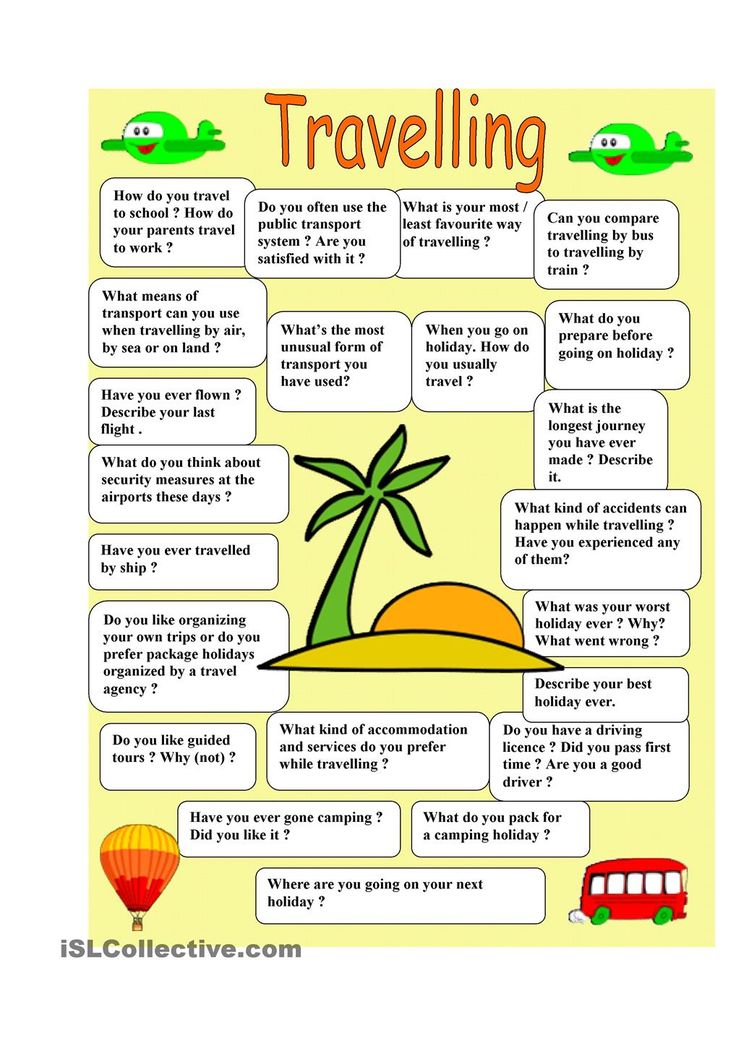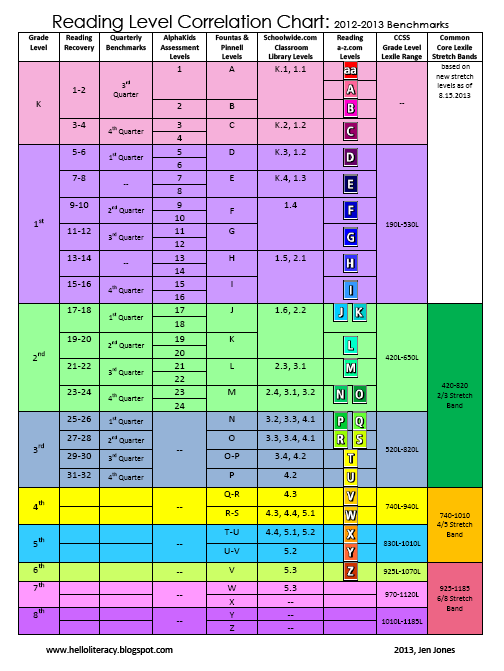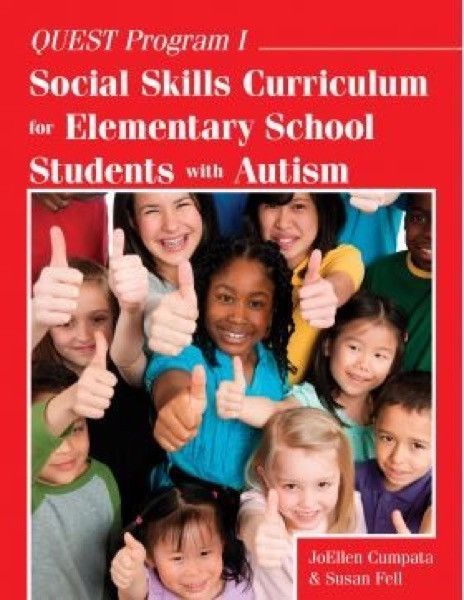What should a child know before 1st grade
45 Things Your Child Should Know Before Entering First Grade
The transition from kindergarten to first grade is a big step for any child. Your child will now be a part of a “big school,” meaning they are surrounded by more students, can eat in a cafeteria, and play outside during recess. They will also adjust to a longer school day, receive more homework, and learn to get around without much help. These changes in routine will cause your child to start feeling independent.
Your child has applied what they have learned in preschool to kindergarten and has now gathered more information in kindergarten to apply in first grade. It is important that children have learned certain facts and information in kindergarten so they can apply those skills next year to help them grow. By the end of kindergarten, their knowledge of reading, writing, numbers, and problem-solving have grown, along with being introduced to other subjects like social studies and science.
Here is an example checklist of what your child needs to know before starting first grade.
Reading and Reading Comprehension Skills
- Recognize upper and lower case letters
- Know, identify, and increase sight word vocabulary (sight words are words that often are spelled differently than how they sound and children must recognize them by sight. Common sight words are: "their", "if", "of", "each")
- Know the alphabet and basic features of letters and words
- Memorize and correctly spell around 130-150 words
- Decoding or sounding new words out (being able to use letter sounds and patterns to recognize and pronounce written words)
- Rhyming more words (ex: frog and clog)
- Tell the difference between facts and fiction
- Recall the sequence of events in a story (first, second, third, ending, etc.)
Writing Skills
- Write upper and lower case letters
- Write their name
- Use letters and shapes to detect different objects
- Create simple words and sentences
- Write in complete sentences
Fine Motor Skills
- Hold a pencil, crayon, or marker correctly
- Hold scissors correctly
Mathematic Skills
- Recognize that addition means putting two groups of numbers together (5+4) and that subtraction means taking away from one group (5-4)
- Add and subtract numbers 1 through 10
- Use objects to show how to break up numbers less than or equal to 10 in different ways (ex: 6 apples = two groups of 3 apples, or 6 apples = a group of 4 apples and a group of 2 apples.
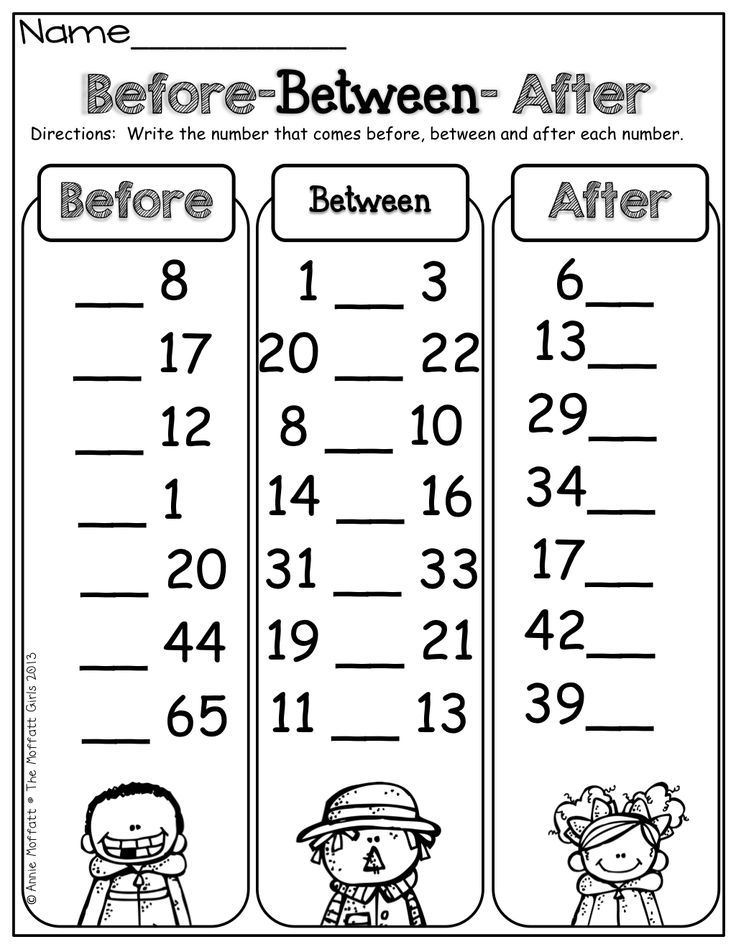 )
) - Use objects or draw pictures to help show addition and subtraction
- Count simple money
- Know numbers from 1-30
- Recognize different patterns (ex: blue square, red square, blue square; should know what comes next)
- Recognize more shapes and master previous knowledge of shapes (square, circle, sphere, star, rhombus)
- Know the tools to measure time and temperature
Social Studies Skills
Social Studies is a subject that is gradually introduced to children in kindergarten. They will learn about past history and events that took place in America. Your child should be able to:
- Understand what history is and know some stories, events, and people in history
- Know important people in United States history (George Washington)
- Understand broad categories of time (past, present, and future)
- Know basic cultures and their traditions
- Know people and events honored in commemorative holidays
- Recognize American symbols (the flag, the eagle, the Statue of Liberty)
- Understand that there are other instruments used to locate places (maps, globes)
Science Skills
Science is another subject that is introduced to children in kindergarten.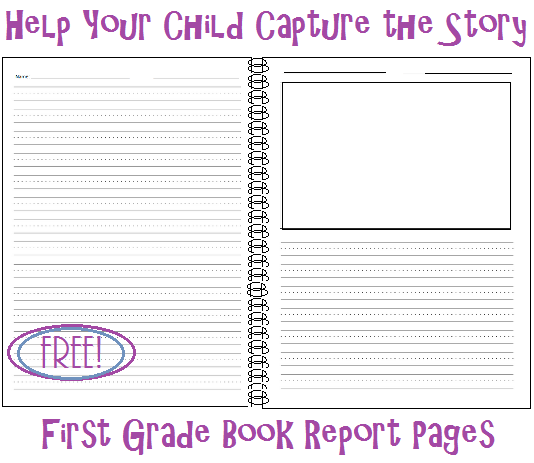 Science teaches about the universe and the natural world through experiments. There are many different areas of science that are introduced upon grade level. Your child should be able to:
Science teaches about the universe and the natural world through experiments. There are many different areas of science that are introduced upon grade level. Your child should be able to:
- Do easy, hands-on experiments
- Know the four seasons and their different climates
- Know the importance of the sun and what it provides the Earth with
- Know the difference between living and non-living things (a plant vs. a teddy bear)
- Recognize how we impact the Earth in terms of recycling and pollution
Social Skills and Abilities
- Participate in group activities
- Share and communicate appropriately with other students
- Respect their peers
- Raise their hand before being called on
- Seek help with assignments when needed
- Show eagerness and willingness to learn
- Sit for a longer period of time than in kindergarten (15-20 minutes.
Read the Rest of the Series!
Have multiple children in multiple grades? Read the rest of the series!
- 21 Things Your Child Should Know Before Entering Kindergarten
- 45 Things Your Child Should Know Before Entering First Grade
- 45 Things Your Child Should Know Before Entering Second Grade
- 43 Things Your Child Should Know Before Entering Third Grade
- 48 Things Your Child Should Know Before Entering Fourth Grade
- 49 Things Your Child Should Know Before Entering Fifth Grade
Sources:
- “1st Grade Skills Checklist.
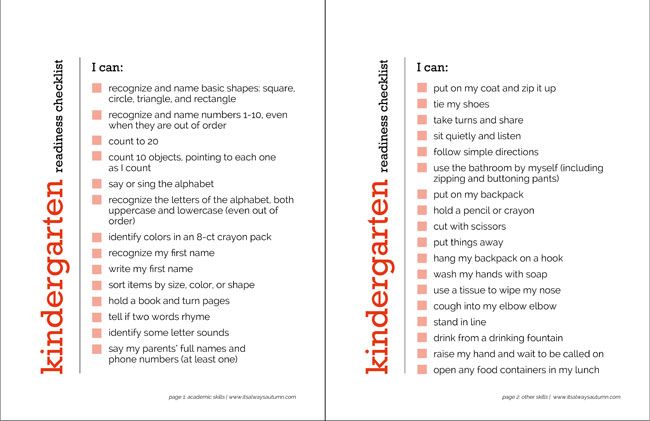 ” LeapFrog. Web. 29 Aug. 2017.
” LeapFrog. Web. 29 Aug. 2017. - “Preparing for 1st Grade.” Scholastic. Web. 29 Aug. 2017.
- "Model Curriculum English Language Arts Units," New Jersey State Government, http://www.state.nj.us/education/modelcurriculum/ela/1.pdf
- Model Curriculum Grade 1 Mathematics Units, New Jersey State Government, http://www.state.nj.us/education/modelcurriculum/math/1.pdf
We wrote a guide answering the most common questions we've gotten from 100s of of parents of first graders. Download it for free today!
1
Topics: Problem Solving, Number Writing, First Grade, New School Year, Elementary School
Ready for 1st Grade: Skills Kids Need
A lot of learning happens in kindergarten to help kids hit the ground running when they go into first grade. Some of the skills kids need going into first grade are social skills, like listening and taking turns.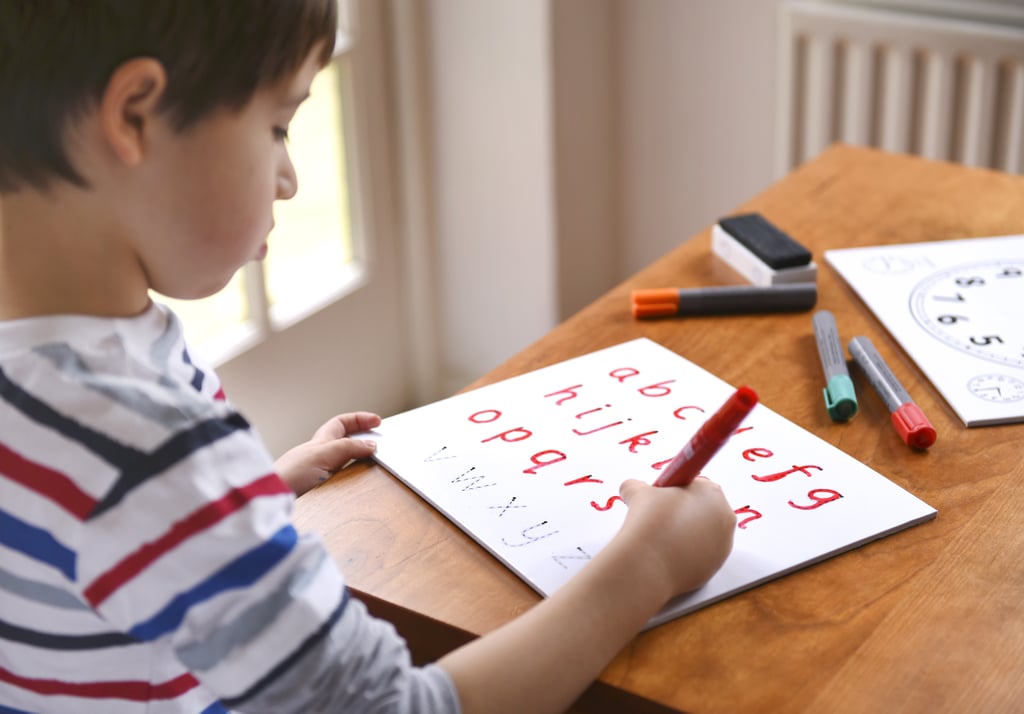 Others are more academic — the skills kids need to develop as they do more work in reading, writing, and math.
Others are more academic — the skills kids need to develop as they do more work in reading, writing, and math.
Here’s a sample of what kids should be learning by the end of kindergarten to be ready for first grade.
Literacy skills kids need for first grade
Literacy skills include both reading and writing. The two are taught together because they’re closely connected. In kindergarten, kids practice breaking words into small chunks and identifying the sounds each letter makes. (This is known as decoding.)
That’s because kids going into first grade are expected to know the alphabet and the basic features of letters and words. They’re also typically able to recognize and provide rhyming words. These are all skills that help emerging readers learn new words and read simple books.
When it comes to writing, incoming first graders are expected to be able to write and share information in a variety of ways. This includes drawing, writing letters and words, listening to others, and speaking out loud.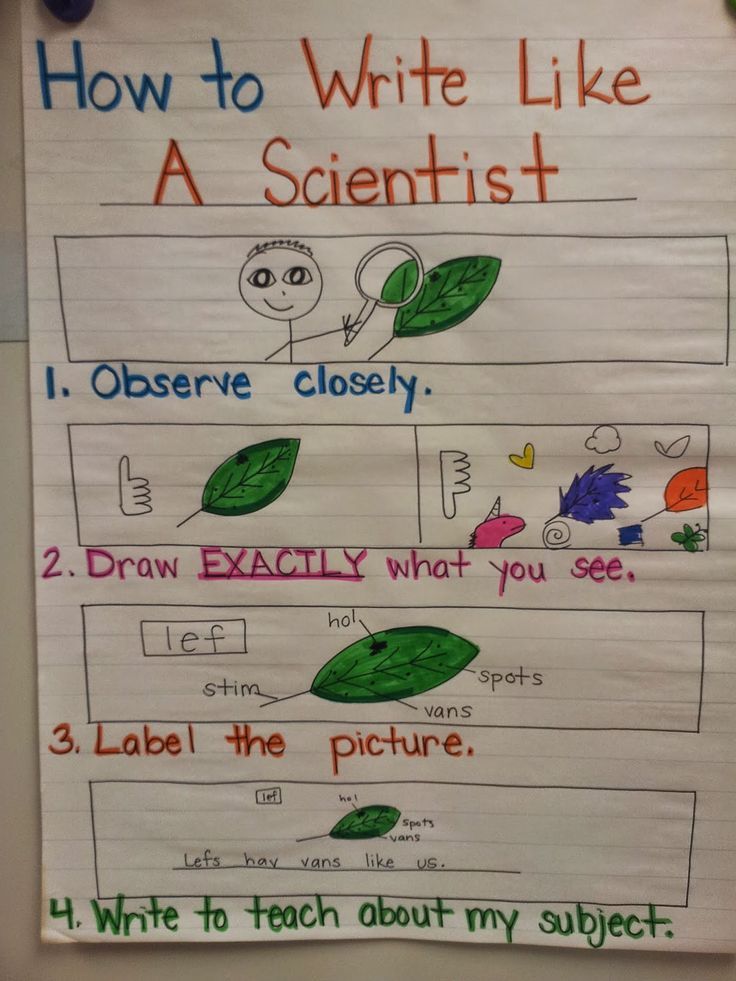 To help build these skills for first grade, kids do activities like these:
To help build these skills for first grade, kids do activities like these:
- Write and recognize upper- and lowercase letters.
- Match letters to sounds, make rhymes, and recognize some words without having to sound them out (teachers refer to these as sight words, and some of the first ones kids pick are and, the, and it).
- Learn and use new words to express thoughts, feelings, and ideas clearly.
- Ask and answer questions about a story the teacher reads aloud, and talk about the characters, settings, and major events in the story.
- Name the person, place, thing, or idea in a picture.
- Follow the rules of conversation by listening and taking turns talking.
- Give information about an event, topic, or opinion by drawing, talking, and writing about it.
- Participate in shared reading and writing activities (for example, the teacher reads a big picture book aloud and students take turns sharing ideas about it).
You can help your child build literacy skills at home, too:
- Learn about ways to help kids connect letters and sounds.
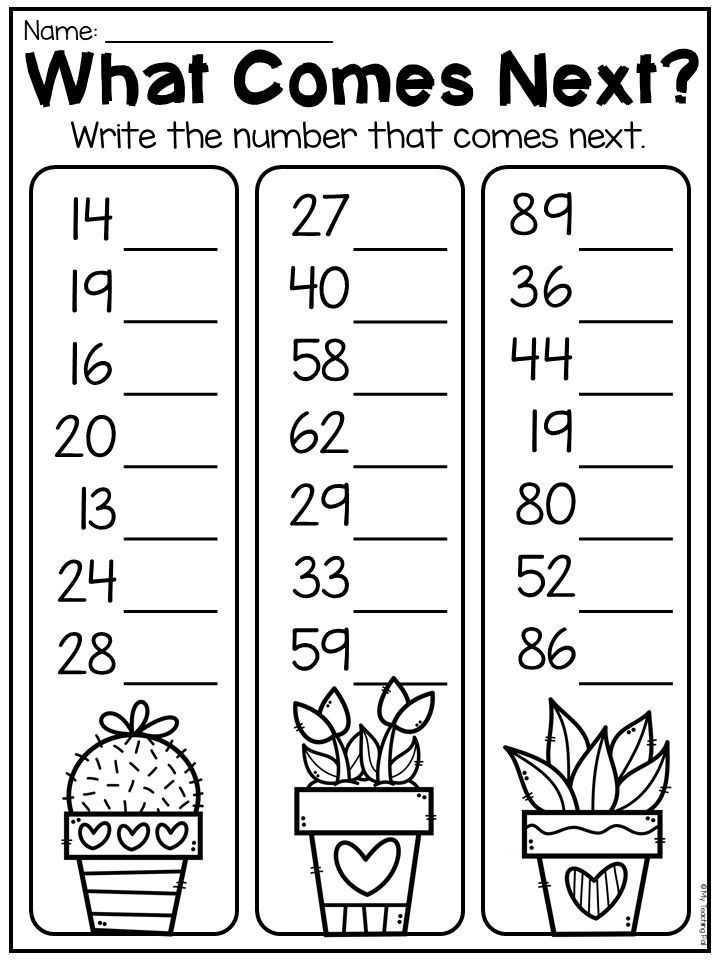
- Get tips to help your child develop good reading habits.
- Use fun multisensory techniques to practice writing.
Math skills kids need for first grade
There are two big math concepts kids need a strong grasp of as they go into first grade. The first is number sense — learning numbers and what they stand for, like connecting the number “5” with a picture of five apples. The other big one is addition and subtraction. Kindergartners also learn to identify and work with shapes.
Here are some activities kids do to build math skills going into first grade:
- Count how many objects are in a group (one by one) and compare it to another group to figure out which is greater or less than the other.
- Recognize that addition means putting two groups together and that subtraction means taking away from one group.
- Add and subtract numbers 1 through 10.
- Use objects to show how to break up numbers less than or equal to 10 in more than one way (for example, 8 erasers = 2 groups of 4 erasers, and 8 erasers = a group of 2 and a group of 6).
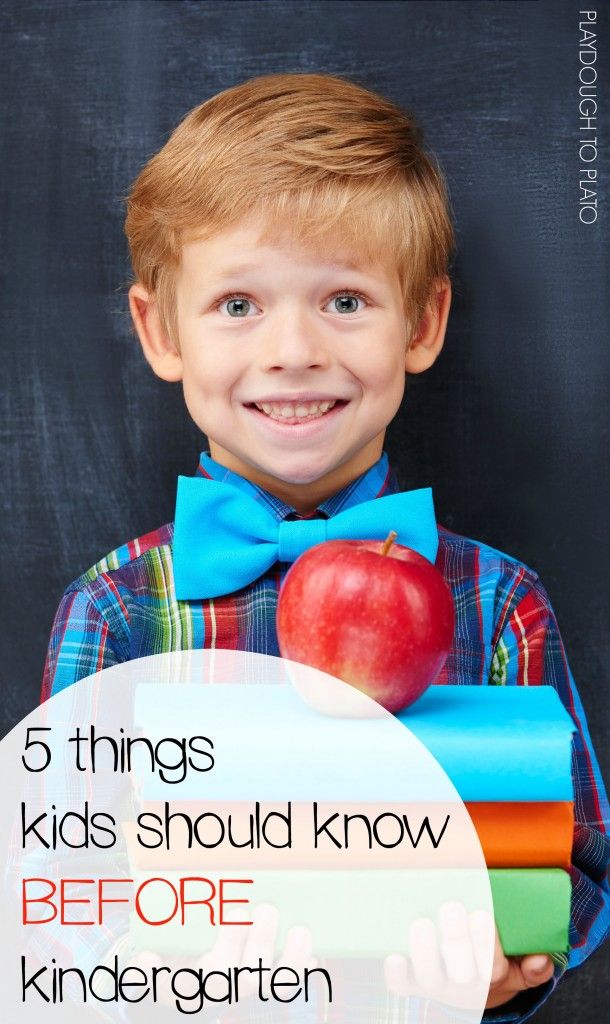
- Find the number of objects to make any group of 1 to 9 into a group of 10.
- Use objects or draw pictures to represent and solve simple addition and subtraction word problems.
You can help your child build math skills at home, too:
- Explore fun picture books to get your child excited about math.
- See how to use everyday household items to practice math.
- Play board games that build math skills.
Working with your incoming first grader
Take a look at your state’s academic standards to see what skills are expected for kids going into first grade. Not all states use the same standards, but many of them have similar expectations for students.
Keep in mind, too, that kids develop skills at different rates. But if your child doesn’t have most of these skills down by the end of kindergarten, it’s a good idea to check in with your child’s teacher to speak about your concerns. Together you can come up with a plan for keeping track of your child’s progress and getting ready for first grade.
Key takeaways
Incoming first graders typically know the alphabet and can add and subtract numbers 1 through 10.
There are fun ways to practice language and math skills to help your child get ready for first grade.
If you have concerns about your child’s progress, talk to the teacher to come up with a game plan.
What a child should know and be able to do by the first grade: knowledge for a first grader
According to the Law of the Russian Federation "On Education", admission to the first grade of state and municipal educational institutions is prohibited on a competitive basis. Any child aged 6.5-8 has the right to enroll in a school. But some things should be taught to the baby before school - this will make it easier to adapt to a new learning rhythm. First grade - what should a child be able to do?
Child's knowledge of the family by the first grade
The child should be able to easily navigate information about close relatives and his/her own data. Full name, age, date of birth, where mom and dad work, how old are the brothers and sisters. It is good if the child knows the phone number of one of the parents and the home address by the first grade.
Full name, age, date of birth, where mom and dad work, how old are the brothers and sisters. It is good if the child knows the phone number of one of the parents and the home address by the first grade.
Knowledge about the surrounding world
It is believed that by the first grade a child knows natural phenomena - snow, hail, lightning. The child should distinguish colors, plants, animals. To test the knowledge of a preschooler, ask him to name a few types of trees or migratory birds that he knows offhand. For clarity, purchase a children's encyclopedia, look at the illustrations together and discuss the paragraphs.
<
Knowledge of time and space
Make sure that the child is guided by the hourly routine of the day. Does he know how to tell the time from a regular clock with hands? Can he list the days of the week and the names of the seasons without hesitation? Another important ability of the child to the first grade is to distinguish between “right” and “left”.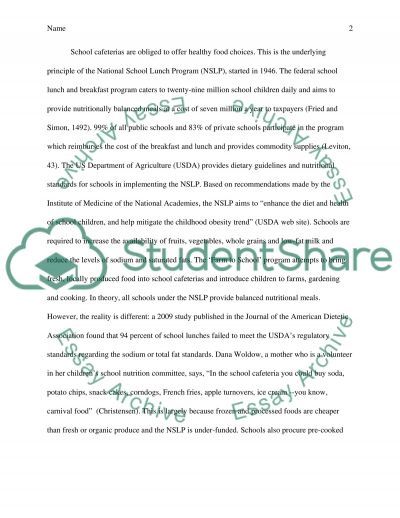
Knowledge of safety rules
It is assumed that the baby is familiar with the basic rules of behavior on the street - in what places and what color of traffic lights to cross the road, what to do if the traffic light is not visible, is it possible to leave with a stranger without the knowledge of parents . This is the minimum knowledge of safety that a child should have by the first grade.
A child's knowledge of mathematics
This is an important category of what a child should be able to do before first grade. There are often problems with mathematics. It is good if the child counts up to 100 and knows how to perform elementary addition and subtraction operations within the first ten. It is expected that he is familiar with basic geometric concepts - a parallelepiped is unlikely to be needed, but a circle, rectangle, square is quite. Teach your child to find patterns to train logic - exercises with pictures like “Find 10 Differences” are perfect here.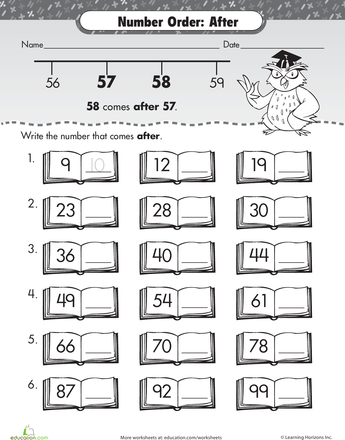
Knowledge of reading and the Russian language
A future first grader is recommended to know the alphabet. Despite the fact that it is not officially required to be able to read, this will definitely be asked at the interview. Children who have learned to read before school are easier to adapt - as a rule, their academic performance is higher than that of children who read in elementary school in syllables. You don’t need to force your child to pore over books without getting out, but you can try to motivate them to read on their own.
<
Resume
There is no official requirement that a child should know by the first grade. To be successful at the Foxford Online Elementary School, a child must have basic reading, writing, and arithmetic skills. Entrance testing in the 1st grade of our school is not provided. But the family is offered a small test to check the readiness of the child for school.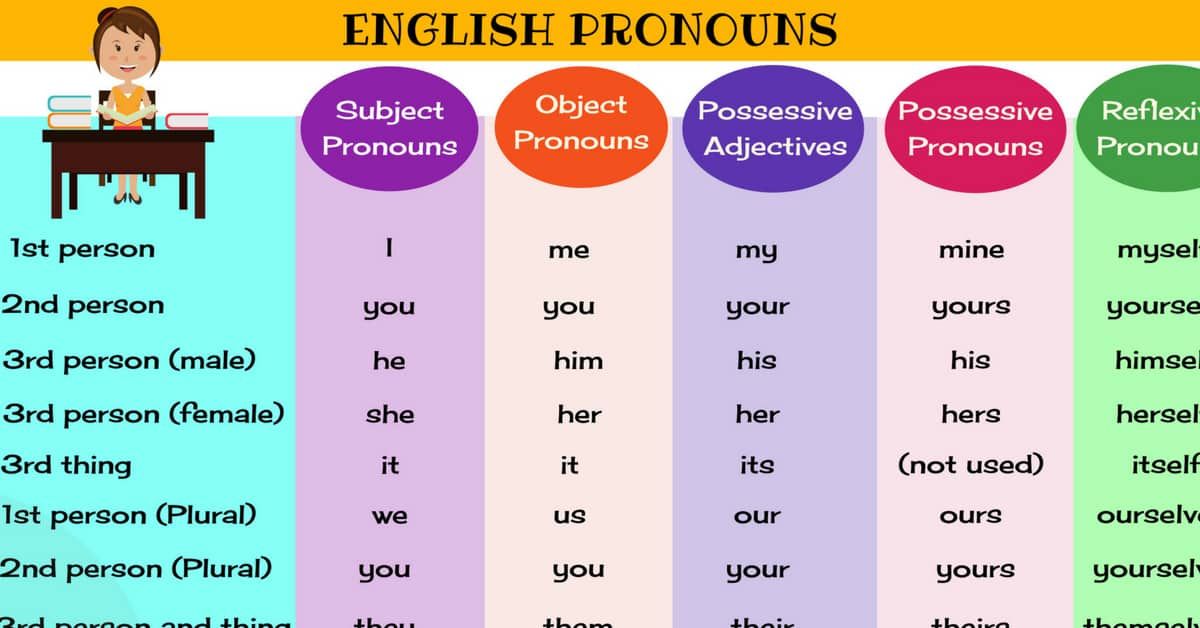
Pay attention to the child's general and basic developmental skills and abilities for the first grade. Ask the baby, based on the points in our article. Focus on the issues that caused the child difficulties. For example, go to a museum to learn more about carnivores, or practice the rules of the road for pedestrians so your child knows exactly how to cross the road correctly. As for reading, psychologists recommend setting an example for a child - read more on your own. If the kid sees that parents take up a book in their free time, he involuntarily copies the behavior.
Don't worry if a future first-grader doesn't know how to do something. It's not so scary, the main thing is the desire to learn.
What a child should know for the 1st grade
When preparing a child for entering the first grade, it is not enough to buy a school bag, shoes and clothes. The baby should have some knowledge and skills ready.
Content:
- School requirements for prospective students
- Knowledge about your family
- Ideas about the world, time and space
- Mathematics and logic
- Reading and speech
School requirements for future students
Many educational institutions voice the criteria for a child's readiness to enter the first grade.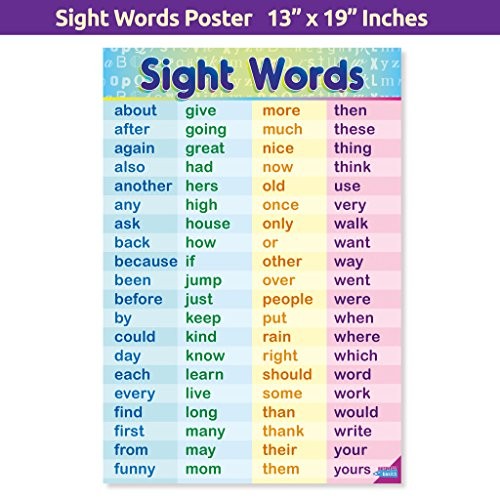 Some of them even conduct entrance tests:
Some of them even conduct entrance tests:
- oral interviews;
- written tests;
- conversations with a school psychologist on the subject of personal readiness to enter school.
However, there is no officially approved list of questions for preschoolers to which they are required to give a clear answer. The legislation on general education of our country guarantees the enrollment in the first grade of all children from 6.5 to 8 years old who do not have medical contraindications. The school can refuse only if there are no educational places in it.
But it will be much easier to adapt to a new rhythm for the baby in the first grade with some knowledge and skills acquired by the baby before school.
Knowledge about his family
The baby needs to know information about himself and his immediate family. Such knowledge includes the date of birth (day and month), age - one's own, as well as parents and siblings, the place of work of father and mother.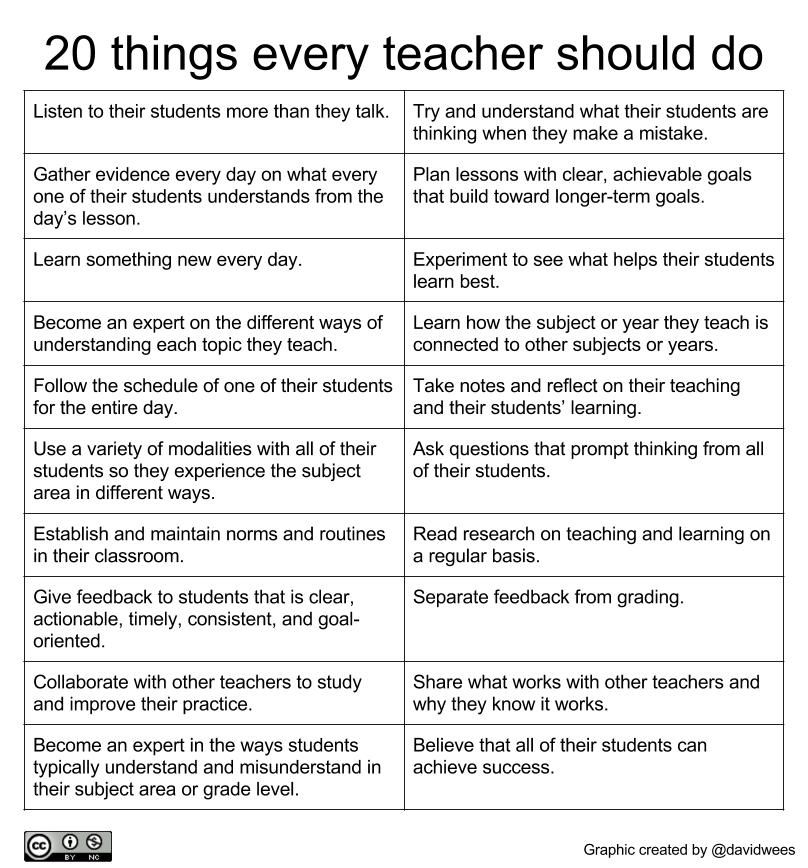 It is desirable that the future first grader could give the address and phone number of at least one of the parents.
It is desirable that the future first grader could give the address and phone number of at least one of the parents.
Ideas about the surrounding world, time and space
By the 1st grade a child should know such atmospheric phenomena as hail, snow, rain. The kid should be able to distinguish between animate and inanimate nature, know known plants, birds and animals (be able to call adults special and cubs - “cat and kittens”, “dog and puppies”), as well as basic colors and shades. Children's encyclopedias and other picture books will help develop this important knowledge.
A kid should know several professions - it is enough to answer such simple questions correctly:
- Who teaches children?
- Which specialist treats people and animals?
- Who composes the music and who performs it?
- Does the artist or the sculptor paint pictures?
You also need to be able to list several sports, tell you which of them require, for example, a ball, and which need skates.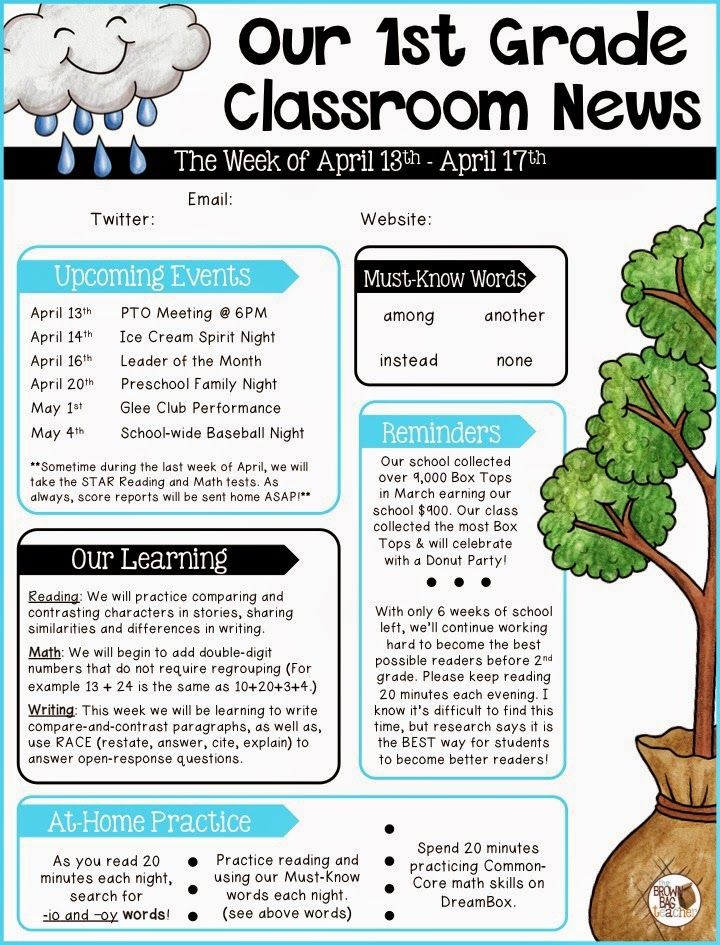
The child must navigate in time and by the clock with arrows, list the names of the seasons and days of the week. It is important for a future first grader to understand where the “right” is and where the “left” is, find common features of objects and combine things into categories according to these parameters.
In addition, by the 1st grade, the child should already be familiar with the rules of behavior on the street: how to cross the road at a traffic light or in its absence, whether it is possible to accept an invitation to take a walk from a stranger and other elementary basics of personal safety.
Mathematics and Logic
It will not be superfluous if the future first grader will be able to count aloud from one to ten in direct and reverse sequence, perform simple arithmetic operations (add, subtract) within 10 units. Multiplying and dividing is not necessary for first graders. This is what they will be taught in elementary school.
It's great if the baby distinguishes the main geometric shapes, knows their names and can group them by common features (for example, large versus small), is able to explain how a rectangle differs from a triangle or a circle. He must also be able to draw a simple figure or depict it in a different way, for example, with appliqué.
Practice logic with your child at the same time. For example, you can find patterns in games like Find Five Differences.
Reading and speaking
Children who already know how to read by the 1st grade have a much easier time adapting to school, their performance is much higher, but there is no strict requirement to be able to read before entering the 1st grade.
And yet, by the age of seven, a child should:
- memorize and retell mini-stories of 3-5 phrases;
- understand the meaning of what is heard;
- be able to compose a story from pictures;
- understand intonations in speech and express them;
- be able to memorize a 4-line poem.




